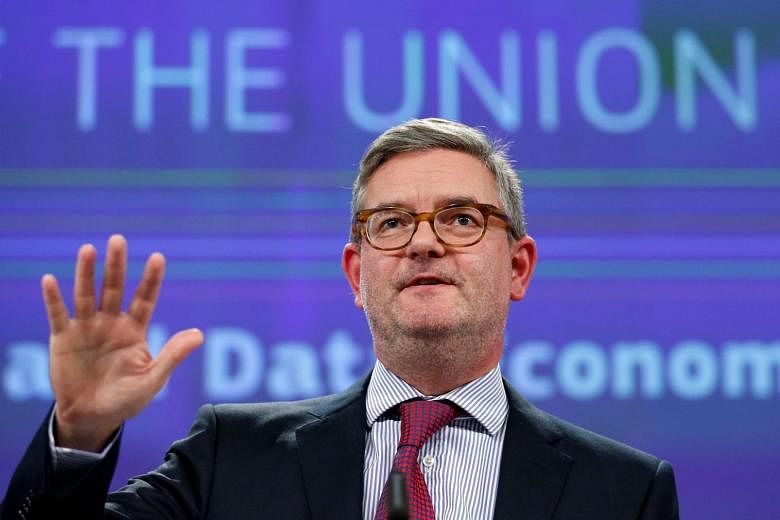BRUSSELS - Brussels is preparing to crack down on social media companies who have been accused of spreading fake news, issuing a stark warning that scandals such as the Facebook data leak threaten to "subvert our democratic systems", the Financial Times reported.
Sir Julian King, European commissioner for security, is demanding a "clear game plan" for how social media companies can operate during sensitive election periods - starting with European Parliament polls in May next year (2019).
A letter dated March 19 from Sir Julian to Mariya Gabriel, commissioner for the digital economy, calls for more transparency on the internal algorithms that Internet platforms use to promote stories, limits on the "harvesting" of personal information for political purposes, and disclosure by tech companies of who funds "sponsored content" on their websites, FT said.
Sir Julian proposes a "more binding approach" than self-regulation, including "clearly and carefully defined performance indicators".
His proposals have backing from the other commissioners who are drawing up the EU's first policy on how to fight "online disinformation" to be published later this month, reported FT.
News broke last month that British political consulting firm Cambridge Analytica had gained access to the personal data of about 50 million Facebook users, and the data may have been used to try to influence Britain's vote to leave the European Union and the United States presidential election.
Facebook now faces multiple investigations in both Europe and the US, along with potentially profit-crimping regulations and limits to its use of data.
A number of EU member states are drawing up "anti-fake news laws" amid a host of allegations over Russian interference in European elections in the past year.
France is preparing legislation to allow its judges to remove and block false viral content during national election campaigns.
Earlier this year, Germany implemented a law that allows for fines of up to €50 million (S$) for social media platforms that fail to remove fake news or posts inciting hatred within 24 hours of them being flagged. Italy and Ireland are deliberating bills that promise up to €10,000 fines and even imprisonment for those who post fake news online..
EU officials are worried that next year's European elections will be hijacked by populist and eurosceptic forces using platforms to spread conspiracy theories, false news and doctored videos.
An EU-wide survey last month found that more than a third of European citizens came across fake news every day, with 83 per cent saying it was a threat to democracy, according to Eurobarometer.
But critics of the commission's approach say it could backfire if the EU ends up shutting down legitimate debate - or is successfully portrayed by its opponents as doing so, FT reported.
Ms Marietje Schaake, a liberal European Parliament member who focuses on digital governance, said there was a strong argument for tougher disclosure rules for "black box" algorithms and website owners whose anonymity meant they had "zero accountability".
But she also warned of the potential for the wider online crackdown to backfire if it was seen an attempt by the EU to curb criticism.
"It does put a spotlight on speech," Ms Schaake was quoted as saying.
"You have to wonder if that's something desirable."

